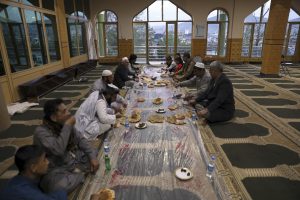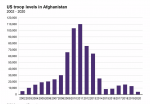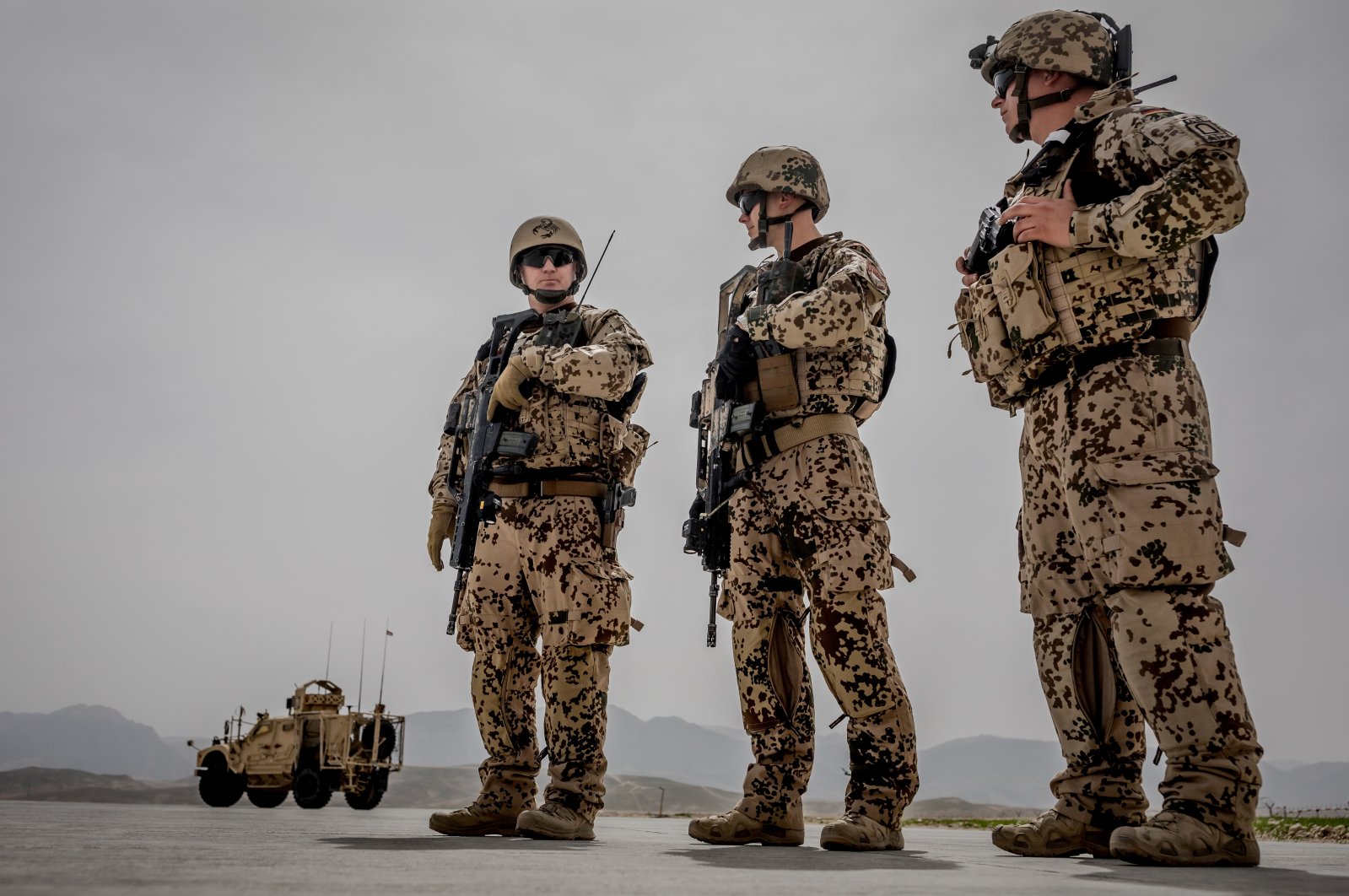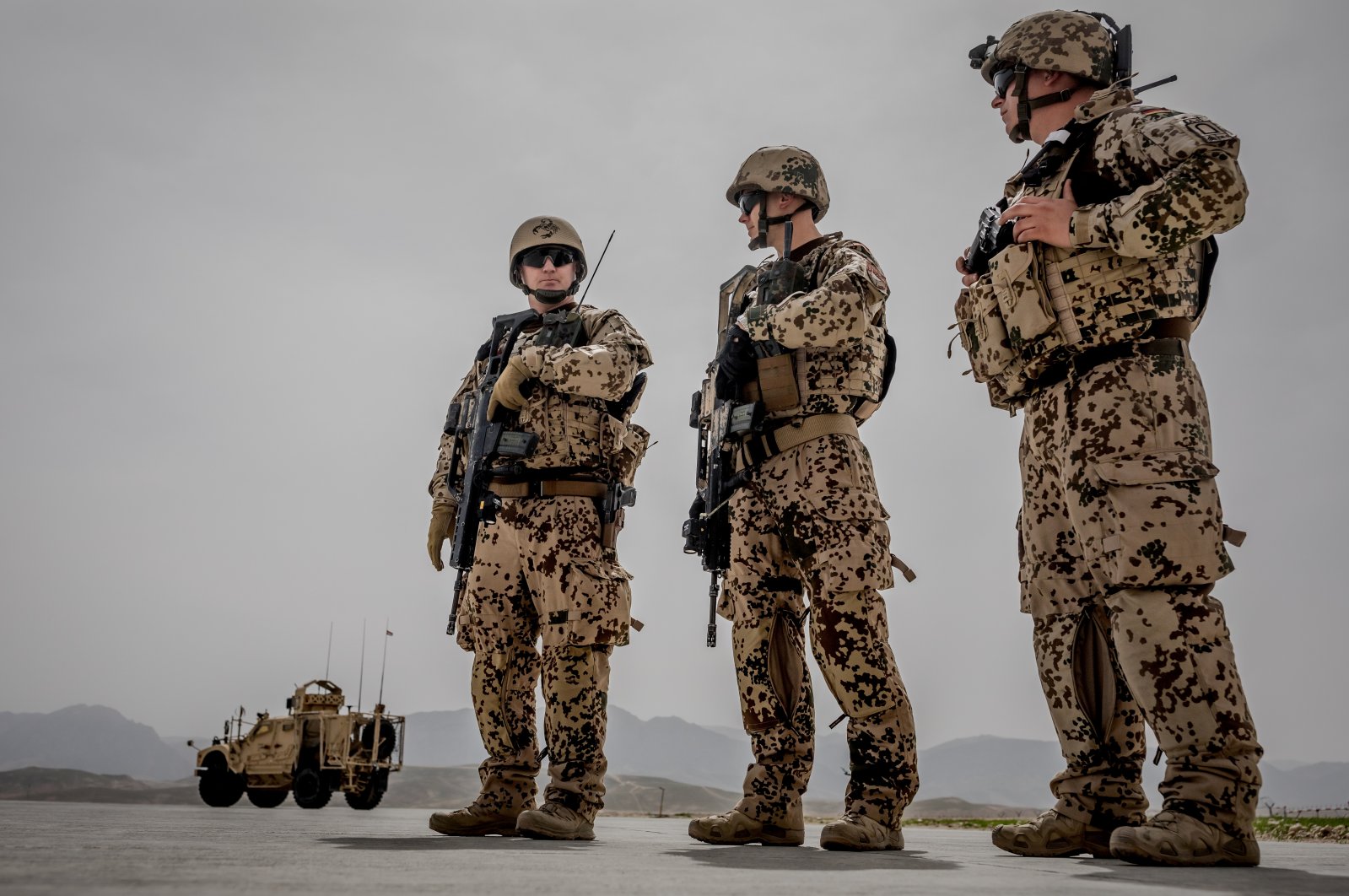The US Exit: The View From Afghanistan
With Biden’s announced timeline for full U.S. withdrawal, there’s a looming question of failed promises in Afghanistan.
By
Ritu Mahendru and
Inshah Malik
April 17, 2021
Muslims share a communal Iftar meal breaking their fast, at sundown on the first day of the holy fasting month of Ramadan, at a mosque in Kabul, Afghanistan, Tuesday, April 13, 2021.
Credit: AP Photo/Rahmat Gul
“Insanity is doing the same thing over and over again and expecting different results.” This quote, often attributed to Albert Einstein, rings true in Afghanistan’s case, as the international community has repeatedly utilized the same tools to resolve conflict when the picture is far too complex for simple solutions.
As the events in Afghanistan unfolded since the peace talks enthusiastically began in September 2020, it was clear from the discussions that the Taliban wanted to form a government based on their extreme interpretation of a religious ideology. Amid recurring setbacks and seemingly insurmountable barriers at the Doha peace talks, U.S. President Joe Biden announced his decision to complete the unconditional withdrawal of U.S. troops from Afghanistan by September 11, 2021.
Following this, Taliban reiterated its desire to form the Islamic Emirate of Afghanistan, showing no flexibility to bring peace in Afghanistan.
A Taliban spokesman, Muhammad Naeem,
tweeted on April 13, “Until all foreign forces completely withdraw from our homeland, the Islamic Emirate will not participate in any conference that shall make decisions about Afghanistan.”
Additionally, Zabihullah, another Taliban spokesperson,
asserted on Twitter on April 14, “If the agreement is breached and foreign forces fail to exit our country on the specified date, problems will certainly be compounded and those who failed to comply with the agreement will be held liable.”
The Taliban have declared on their website that since “the withdrawal of forces is being delayed by several months, […] the American side will be held responsible for all future consequences, and not the Islamic Emirate.”
Whether or not the Istanbul conference will go ahead is now hanging by a thread.
The situation has the Afghan citizens anxious about the possible future of the country. The key questions remain – will Afghanistan ever achieve peace, with or without the U.S. withdrawal? What needs to happen to ensure peace in Afghanistan? The answer lies in the fraught nature of the peace deal and several lacunae in the peace process.
The Fraught Peace Deal
In Afghanistan, the “
Protection of Civilians in Armed Conflict” annual report published by the Office of the U.N. High Commissioner for Human Rights (OHCHR) and the U.N. Assistance Mission in the country reported 8,820 civilian casualties with 3,035 deaths in 2020. While that represents a 15 percent decrease in civilian causalities in comparison to 2019, a disturbing trend of
targeted killings surged forward even as the peace talks between the United States and Taliban were initiated.
In the last three months, 560 pro-government forces and 163 civilians have been killed in Afghanistan. This is not a complete analysis, as actual figures of those killed are often not fully revealed by the government officials. Furthermore, the killings are complicated by the quagmire of internal politics, as many Afghans believe state forces are also engaged in arbitrary killings of civilians.
Experts say the
Taliban is stronger now than at any point since 2001. With up to 85,000 full-time fighters, it controls one-fifth of the country and continues to launch attacks. The Taliban is currently present in all 34 provinces of the country. The Islamic fundamentalist group has maintained its insurgency against the U.S. invasion of Afghanistan.
Even though the
deal between the United States and the Taliban included a clear clause on a ceasefire, visualized as a mandatory item on the agenda of intra-Afghan talks and an essential part of the agreement, the violence in Afghanistan has continued. Recently, some of the deadliest attacks in recent years have gripped Afghanistan’s capital city Kabul, such as a
brutal attack on a maternity ward in Kabul that killed 24 people, including 16 mothers, and injured 20 people and newborn babies. Similarly,
an attack on Kabul University was launched in November, killing at least 22 people and wounding another 27. Fearful of these brutal attacks, Afghans have been left traumatized.
The Taliban have
officially denied any responsibility for the now-common targeted attacks in which pressure-plate improvised explosive devices (IEDs) are attached to the vehicles of civil society members and government officials. However, government officials and experts believe Taliban proxies are doing their dirty work to undermine the government’s capacity and generate a public fear so that government concedes at the peace talks. The U.S.-Taliban peace deal created a dilemma, and Biden’s announcement that the United State will not meet the May 1 deadline for full withdrawal has again increased the likelihood that violence will continue unabated.
Within the current political arrangement, government officials are divided over what the cost of offering peace to Taliban could be. There is a general fatigue about the culture of violence and a consensus for peace exists, but the question remains for the government officials: What price we are willing to pay for this peace, and what lives are we prepared to sacrifice? Increasingly, many government officials believe that under any peace deal with the Taliban, the country will inevitably become more authoritarian, and much of the progress made for women’s rights and minority rights would be sacrificed. More so, the officials are concerned about preservation and protection of the development gains that country has made in the last 20 years, especially since Taliban are openly suggesting that they will enact Shariah, or Islamic law, in the country when in power.
Enjoying this article? Click here to subscribe for full access. Just $5 a month.
Speaking to The Diplomat, award-winning journalist Masood Hosseini asserted a commonly held view: The “Taliban is a terrorist group and according to me they should never to come to power, but the flip side of the coin is that they will never end the war if they are not in power. The Afghan government is not capable to defeat them militarily. The only formula to peace is that Taliban comes to the power and form interim government. They should talk.”
Dr. Ritu Mahendru, during her stay in Afghanistan, spoke to several community groups who shared the view above and felt the peace talks were a double-edged sword. While the Taliban have remained adamant on their demand for an Islamic government, the specifics have not been revealed. When questioned about women’s education and civil rights, the Taliban have maintained these will be offered under a strict Islamic jurisprudence.
However, these claims need to be taken with a pinch of salt, as Hosseini explained: “The Taliban maintain two positions on women’s rights and they change their stance based on whom they speak to. They say something else to Afghan people and something else to the U.S. government.”
It is the pressure of the international community that can ensure rights of minorities and women are protected, he believes. “It’s really on the international community now, especially the U.S., not to give too much power and leverage to Taliban to do whatever they want and resume or revive their era of governance.”
Lack of Civil Society Engagement in the Peace Talks
From the beginning, the peace process has involved a top-down approach and has failed to consider sustained or strengthened civil society engagement, as it has been essentially politically motivated.
“Elites and secular intellectuals have been excluded from the peace talks,” Hosseini pointed out. He predicted that “They will leave Afghanistan and [we] will see another wave of emigrants from Afghanistan. If the intellectuals leave, the country will be in the hands of warlords again and if that happened then that would be the cause of another civil war in the country.”
In our discussion with several government officials, one senior level official from the Ministry of Rural Rehabilitation Development, Mukhtar Sabri, expressed his discontent with the process as well: “Roughly 80 percent of our economic development activities in rural Afghanistan are on hold due to Taliban’s continuous interference. Donors are getting increasingly concerned about the Citizen Charter program [the government’s flagship program, funded by the World Bank] and funding it due to the peace process. The international community needs to stay engaged.”
He added, “Everyone I know is concerned that we will fall into pre-2001 practices and a civil war can erupt if the Taliban comes into power.”
Evidently, the intra-Afghan dialogue is flawed due to the dominance of people from the pro-government and Taliban sides. The current negotiators represent a generation that is far removed from the aspirations and needs of young Afghans. Adding to the problem, there is no civil society engagement; people especially across the ethnic, urban, and rural divides were left out of the process.
“There is no mechanism in place to ensure diverse Afghan perceptions are considered throughout the process. The talks brought together a group of Afghan government representatives on the one side and U.S. on the other side,” asserted Abid Humayun, a humanitarian practitioner and an executive director for Sanayee Development Organization. “No one had even remotely thought about social inclusion, making sure that everyone’s voices are heard – basically no one is listening. There is no process or mechanism for peace.”
Challenges for Peace and Reconciliation
A large portion of Afghan civil society is concerned about their economic and social well-being and worried their voices being lost in a process where former warlords, mujahideen, and Afghan government generate divided loyalties among general populations. The Taliban, meanwhile, project themselves as the representatives of majority Pashtun sensibilities, though they claim to remain open for consultations.
On the question of ethnic representation and exclusion, Hosseini accused Afghanistan’s President Ashraf Ghani of being “a totalitarian person” seeking to keep his hold on power.
“Even though he has suggested early elections, he is aware that Afghan citizens won’t vote for the Taliban and the Taliban won’t accept President Ghani’s plan,” Hosseini said, implying Ghani’s suggestion is essentially a bluff. “While the Taliban remain open for consultations with ethnic groups, Ghani has point blank rejected the idea.”
Enjoying this article? Click here to subscribe for full access. Just $5 a month.
Furthermore, the possibility of dialogue and peace is challenged by differing needs of different victims. There are ruptures within the various groups that have been devastated by the 20-year conflict.
“The victims’ groups remain divided – these are the groups who have lost their families and friends to the insurgent groups, the U.S. air strikes, or government strikes,” Humayun explained. “One group is prepared to forgive and there are those who want justice and are not prepared to forgive without seeking justice. The victims’ experience eclipses the political party agreements between the U.S., [the Afghan] government and the Taliban.”
The other important challenge for peace and reconciliation is the lack of understanding of people’s experiences and war-related trauma. Afghan civil society is a product of a history of warfare, including a civil war in the early 1990s, which devastated the people after the Soviet defeat. The trauma of such a process remains unprocessed and unaddressed and is likely to replicate historical fault lines.
Shabnam Bina, the head of monitoring and evaluation at Care International, argued that “if the peace process doesn’t address the issues [and] animosities among people, they are likely to cash in on the situation for settling personal scores and pushing the country into further violence by stoking ethnic tensions.”
Leaving the Afghan people in such a precarious condition undermines the promises with which the United States first invaded the country back in 2001. Clearly U.S. foreign policy is not determined by the slogans of human rights and women’s rights that originally helped justify the now 20-year-old war with al-Qaida and then Taliban. Furthermore, Afghan society is threatened by regional powers who will compete with one another to gain control and influence over Afghanistan. To the east, Pakistan and India are likely to bring their interstate rivalry from Kashmir to Afghanistan, further damaging the state of human security. In addition to this, Afghanistan’s western neighbor, Iran, will also vie for influence in the absence of a solid civil society that can sustain the pressures of governmental transition.
Afghan citizens therefore are trapped in a quagmire of politics in which they remain defenseless. In such circumstances, the rearming of factional groups is one possible outcome as Afghans look to fill the gap to provide human security. The international community, particularly humanitarian organizations, must engage regional powers, regardless of the U.S. troop withdrawal, and step up to a moral obligation to ensure that stability, justice, and peace take root in the country through a long-term engagement with the civil society. This should include a more genuine intra-Afghan dialogue for processing trauma and reconciliation, and not only through engagement of the powerful actors on all sides.
You have read
2 of your
5 free articles this month.
Posted For Fair Use
With Biden’s announced timeline for full U.S. withdrawal, there’s a looming question of failed promises in Afghanistan.
thediplomat.com


 www.abc4.com
www.abc4.com


 www.abc4.com
www.abc4.com






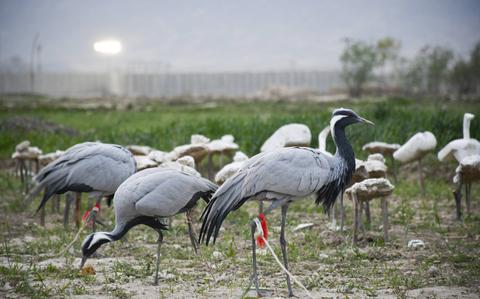

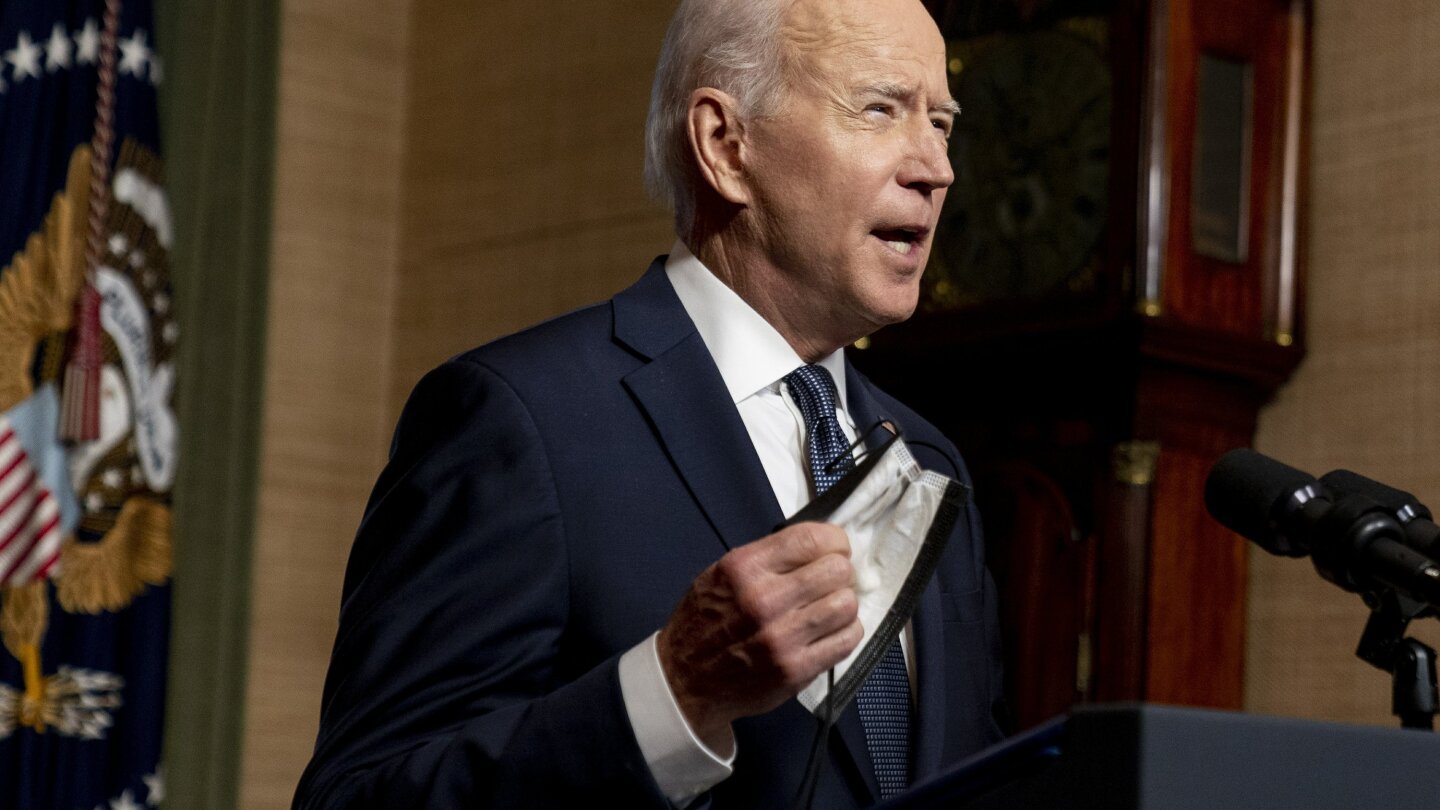



 Michael Isikoff
Michael Isikoff